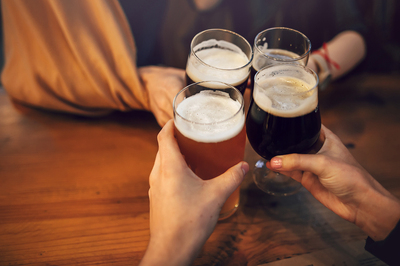Demi Lovato’s recent drug overdose — after years of sobriety — shone the light on an important subject. Relapse is very much part of the reality for addicts and the people who love them. Here’s a closer look at drug addiction and relapse, along with why treatment is a critical part of the recovery equation.

Choosing the right company can make all the difference for addicts.
The Winding Journey to Recovery
Like many recovering addicts, Demi Lovato had an extended period of sobriety before her recent relapse. Not only was she sober for six years before relapsing earlier this year, but she’s actually been in rehab multiple times — the first when she was just 18.
While Lovato’s relapse may be among the most widely known, it is not uncommon. In fact, approximately 60 percent of people recovering from addiction have a relapse of some sort. According to the National Institute on Drug Abuse (NIDA), “Relapse rates for drug use are similar to rates for other chronic medical illnesses.” In other words, whether someone is suffering from asthma, high blood pressure, or addiction, the relapse rates are comparable. Therefore, so should be the expectations for relapse.
The risk of relapse doesn’t negate the value of treatment. In fact, the converse is true. Explains NIDA, “The chronic nature of addiction means that for some people relapse, or a return to drug use after an attempt to stop, can be part of the process….Treatment of chronic diseases involves changing deeply rooted behaviors, and relapse doesn’t mean treatment has failed. When a person recovering from an addiction relapses, it indicates that the person needs to speak with their doctor to resume treatment, modify it, or try another treatment.”
Think of it this way. Just because you or a loved one relapsed following treatment for asthma doesn’t mean you should avoid treatment. The same applies to addiction treatment.
The Stages of Relapse
While relapse may seem simple in concept — the choice to use after sobriety — it is more complex than that. In fact, according to research published in the Yale Journal of Biology and Medicine, relapse is a gradual, staged process. When people recognize the stages, they’re more likely to avoid progressing further through them.
What are the stages? Emotional relapse comes first. During this stage, recovering addicts aren’t yet thinking of using because they remember what relapse feels like. However, they’re already exhibiting emotions and behaviors of denial which are laying the groundwork for future relapse. These include isolating themselves, bottling up their emotions, avoiding meetings, and focusing on other people’s problems instead of their own. All of these things have an underlying commonality: poor self-care.
According to researchers, the more people understand the value of self-care during this stage, the better prepared they’ll be to avoid relapse.
After emotional relapse comes mental relapse, which is when people begin to consider using again despite another part of themselves that is resisting giving in. Unfortunately, as mental relapse progresses, the former takes over the latter. This is also the stage during which denial gives way to bargaining.
Say researchers, “Clinical experience has shown that occasional thoughts of using need to be normalized in therapy. They do not mean the individual will relapse or that they are doing a poor job of recovery. Once a person has experienced addiction, it is impossible to erase the memory. But with good coping skills, a person can learn to let go of thoughts of using quickly.”
Last comes physical relapse, during which people begin using again. Again, the coping strategies learned in cognitive therapy are vital to ongoing recovery.

Therapy during treatment can help teach individuals vital coping strategies.
The Treatment Imperative
Ultimately, the role of treatment in both recovery and relapse prevention cannot be overstated. “The key to relapse prevention is to understand that relapse happens gradually. It begins weeks and sometimes months before an individual picks up a drink or drug. The goal of treatment is to help individuals recognize the early warning signs of relapse and to develop coping skills to prevent relapse early in the process, when the chances of success are greatest. This has been shown to significantly reduce the risk of relapse,” propose researchers.
The takeaway? While relapse after rehab may be demoralizing, it should not be unexpected. Nor should it be a cause for lost hope. Rather, treatment facilitates an individual’s ongoing chances of changing his or her life toward true growth and recovery. Contact us at Harris House today to learn more about how our substance abuse treatment programs can help individuals bounce back from relapse and regain their sobriety.







